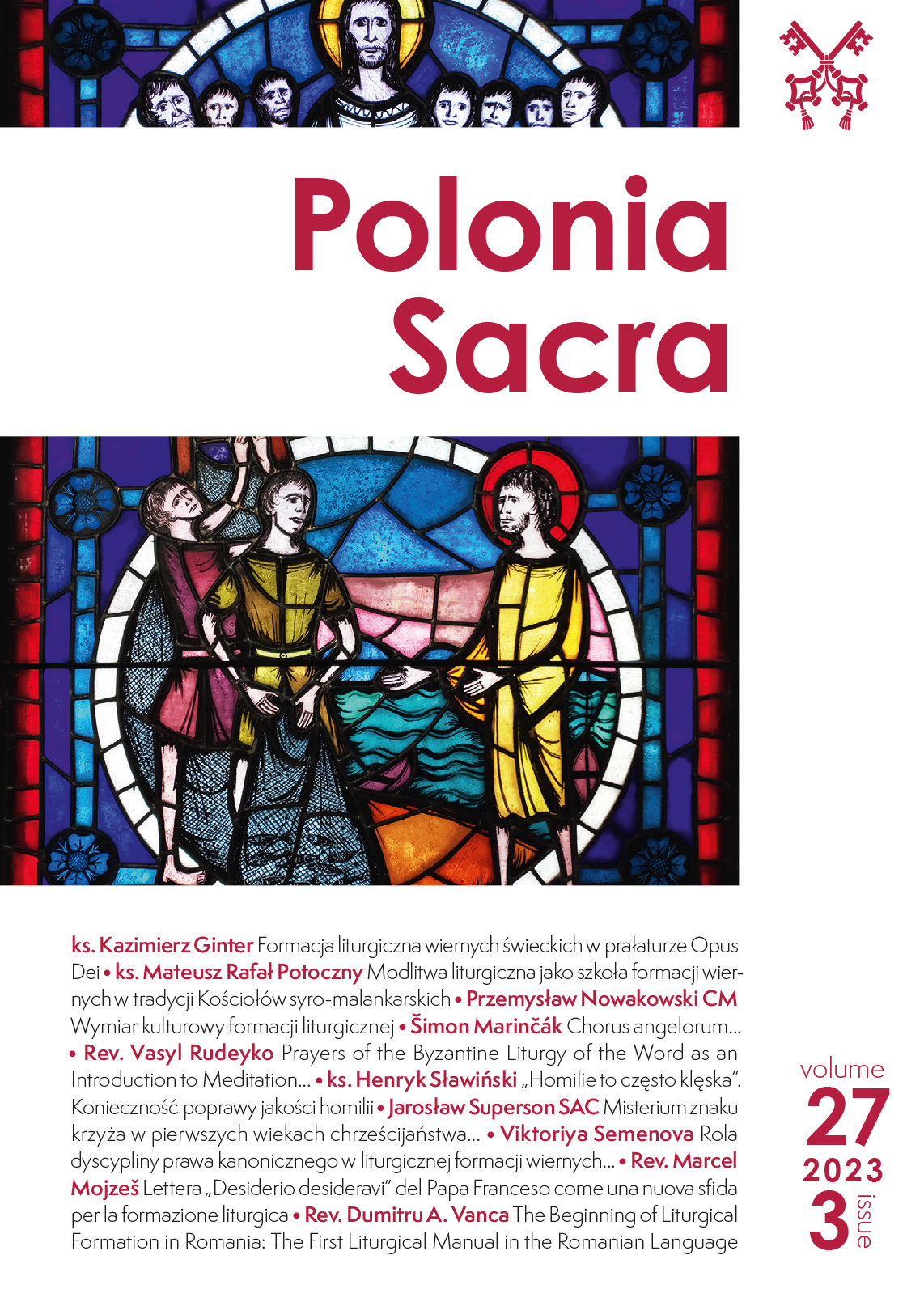Chorus Angelorum: Towards the Active Participation of the Liturgical Assembly. A Look at the Functionality of the Choir
DOI:
https://doi.org/10.15633/ps.27304Keywords:
choir, chant, active participation, worship, assemblyAbstract
The issue of the active participation of the liturgical assembly in worship is a question to which it is difficult to find a satisfactory answer. The choir plays a key role in this problem. While some see its performance as enriching and enhancing the solemnity of the service, others see it as a hindrance or even a limitation to the active participation of the people. Certain indications are offered by the documents of the Second Vatican Council, but these cannot be applied unreservedly to another tradition, in the case of Slovakia and the Byzantine tradition. This study thus attempts to gain insight into this issue, offering some facts that speak mainly in favor of the participation of the choir, but at the same time confirming that the activity of the choir does not prevent the full and active participation of the people in the liturgy.
References
AA.VV., Malá encyklopédia hudby, Bratislava 1969.
Marinčák Š., Liturgická hudba Mukačevskej eparchie: niekoľko poznámok k účinkovaniu kantorov, “Καλοφωνια” 7 (2014), p. 96–106.
Marinčák Š., On the Cantor’s Role in the Byzantine Churches in Slovakia, „Teologický časopis” 1 (2018), p. 7–18.
Richter K., Liturgie a život, Praha 2003.
S. Atanasio, Contra gentes, n. 42–43, in: Opera omnia quae exstant, tomus primus, accurante J. P. Migne, Parisiis 1857, c. 83–87 (Patrologiae Cursus Completus. Series Graeca, 25).
Vrablec J., O otázkach viery, Bratislava 1992.
Downloads
Published
Issue
Section
License
Copyright (c) 2023 Šimon Marinčák

This work is licensed under a Creative Commons Attribution 4.0 International License.
Authors who publish in this journal agree to the following terms:
- Authors retain the copyright and full publishing rights without restrictions and grant the journal right of first publication with the work simultaneously licensed under a Creative Commons Attribution 4.0 International License that allows others to share the work with an acknowledgement of the work's authorship and initial publication in this journal.
- Authors are able to enter into separate, additional contractual arrangements for the non-exclusive distribution of the journal's published version of the work (e.g., post it to an institutional repository or publish it in a book), with an acknowledgement of its initial publication in this journal.
- Authors are permitted and encouraged to post their work online (e.g., in institutional repositories or on their website) prior to and during the submission process, as this can lead to productive exchanges, as well as earlier and greater citation of published work (See The Effect of Open Access).

